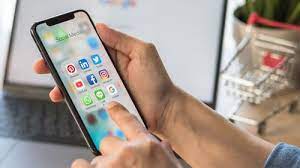Services Through Smartphones have transformed them into powerful tools that offer a vast array of services, revolutionizing the way we live, work, and connect. From communication and entertainment to productivity and health, smartphones have become indispensable in modern life.
Communication services on smartphones have expanded far beyond traditional voice calls and text messages. Messaging apps, such as WhatsApp and Telegram, allow for instant communication with friends and colleagues globally. Video conferencing apps like Zoom and Microsoft Teams enable virtual meetings, fostering remote collaboration and connectivity.
Smartphones serve as hubs for accessing a myriad of entertainment services. Streaming platforms like Netflix, Spotify, and YouTube bring movies, music, and videos directly to users’ fingertips. Gaming apps provide immersive entertainment experiences, and augmented reality (AR) applications enhance reality through interactive and engaging content.
Productivity tools on smartphones have redefined the way we work. Email applications like Gmail, task management apps such as Todoist, and cloud storage services like Google Drive facilitate efficient work on the go. Document editing apps, such as Microsoft Office and Google Docs, enable users to create and edit files seamlessly from their smartphones.
Health and fitness services are increasingly integrated into smartphones. Fitness tracking apps, like Fitbit and Apple Health, monitor physical activity, sleep patterns, and overall well-being. Telehealth services allow users to consult with healthcare professionals remotely, providing convenient access to medical advice and prescriptions.
Financial services through these devices have become commonplace. Mobile banking apps offer a range of functionalities, from checking account balances to transferring funds and paying bills. Payment apps like PayPal, Venmo, and mobile wallets streamline transactions, making in-person and online payments hassle-free.
Navigation and transportation services have been transformed by smartphone applications. GPS navigation apps like Google Maps and Waze provide real-time directions, traffic updates, and alternate routes. Ride-sharing services like Uber and Lyft make transportation convenient and accessible with a few taps on the screen.
I personally rarely use any services through my smartphone because it is just to hard to focus on anything on the little screen. That’s why I prefer to do all my internet business on my laptop because the screen is much bigger and it seems as though you can understand more of what your looking for on the computer. But I will book hotel reservations with my smartphone because they are easier to find also they are easier to get my discounts with.
Smart home services enable users to control and monitor their home devices remotely. From adjusting thermostats to managing security systems, smartphones act as centralized hubs for smart home automation. Virtual assistants like Siri.com and Google Assistant further enhance user interaction with smart devices through voice commands.
In conclusion, these devices have evolved into multifunctional tools that offer a diverse range of services. From communication and entertainment to productivity, health, finance, and beyond, the services accessible through smartphones continue to shape and enhance various aspects of our daily lives. As technology advances, the potential for new and innovative smartphone services is boundless, further integrating these devices into the fabric of our interconnected world.
Smartphones have become indispensable tools that offer a wide array of services to users, transforming the way we live, work, and interact with the world. Through smartphones, users can access a multitude of services conveniently from the palm of their hand.
Communication services are perhaps the most fundamental, allowing users to make phone calls, send text messages, and engage in video calls through various messaging and social media apps. Moreover, smartphones enable seamless access to email, allowing users to stay connected to work and personal contacts on the go.
Additionally, smartphones provide access to a vast ecosystem of mobile apps, offering services ranging from navigation and transportation (ride-sharing apps) to banking and financial management (mobile banking apps). Users can also access entertainment services such as streaming music and video platforms, e-books, and mobile gaming.
Furthermore, smartphones facilitate productivity and organization through services like calendars, task managers, note-taking apps, and document scanners. They also serve as hubs for accessing health and fitness services, with apps for tracking workouts, monitoring health metrics, and accessing telemedicine services.
Overall, smartphones offer a diverse range of services that cater to virtually every aspect of modern life, empowering users with convenience, efficiency, and connectivity wherever they go.

